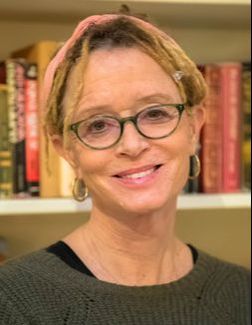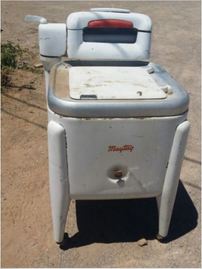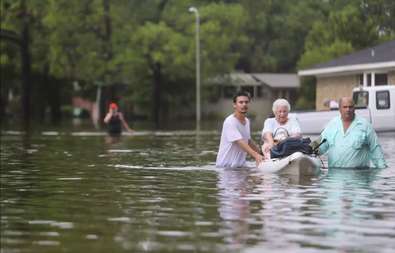My first attempt:
|
by Gwendolyn M Plano On a whim, I'm responding to an invitation to write a Haiku poem using the two words Sweet and Scent. They are this week’s prompt words chosen by writer Ronovan Hester. Ron hosts a challenge that anyone can participate in called Ronovan Writes Weekly Haiku Poetry Prompt Challenge. Be sure to check it out. If inspiration beckons, read Ron’s Haiku Prompt Challenge Guidelines for more information.
My first attempt:
19 Comments
by Gwendolyn M Plano  Writer Anne Lamott gave a haunting commencement speech at UC Berkeley a while back. Two sentences, in particular, struck me: “Your problem is how you are going to spend this one odd and precious life you have been issued. Whether you’re going to spend it trying to look good and creating the illusion that you have power over people and circumstances, or whether you are going to taste it, enjoy it and find out the truth about who you are.” Lamott's quote prompts the question, what is the truth about who we are? Is it possible that we are an accident of nature, a haphazard blend of genes? Are we the mistake of our parents or even their planned prodigy? Are we titles like president or director or even the recluse who lives down the street? Who are we? What is the truth? Why are we alive? For decades, I have researched Near Death Experiences (NDE). I’ve read most of the published books on the topic, studied the testimonies of large numbers of people, and have been blessed to talk with a few of those who have had an NDE. My interest began as an attempt to understand my own experiences of the same, but it soon morphed into an unexpected journey. I was a very young child when I first experienced another realm. I was looking at all the nuns in dark habits surrounding a child in a hospital bed – each nun had her head turned downward in prayer. I heard mumbling, but I have no recall of words. I saw a doctor in white, bending over the child doing something to her chest. I watched curious of the scene before me, and then suddenly I was in the bed, coughing, under a plastic oxygen tent. I remember the doctor’s smile when I opened my eyes, the joy from the nuns when they saw that I was alive. Only later did I learn that I had pneumonia and nearly died. This early experience was followed much later by another. In both, I glimpsed a state of mind that was unencumbered by fear or worry, a state of mind that was rational and loving. So, who are we? What is THE truth? What if our bodies, our brains, our senses are only a limited part of our story? Is there a way for us to know the unlimited part of who we are - short of a NDE? I suspect we glance at another reality whenever beauty or love brings us into wonderment. At such moments, we let go of our human confines and experience something divine. To discover the truth of who we are, I believe we need to taste and enjoy life, as Lamott has suggested – the warmth of a child’s embrace, the tenderness of a friend or stranger, a sunbeam bright through the clouds, a pet’s adoring affection. Within the ordinary lies the extraordinary - we just need to embrace it. If we all honored the “precious life,” would our world be so divided? by Gwendolyn M Plano  We all face them – the final goodbyes to loved ones. Almost a year ago, my dad passed away. Now, my mom is preparing for the same journey. Tears come easily these days and with those tears, memories. I hadn’t expected to travel back to my childhood while watching mom take her leave, but scenes have resurrected drawing me through the years, to exchanges between mom and me. One such scene follows... I was about 5 or 6 years old and was helping mom with the wash. We had a Maytag wringer washer outside in the shed. She was busy with the fifth baby and asked me to wring the clothes and hang them on the line. All was fine - until my hair got caught in the rollers. “Do you remember that day, Mom?” “Oh yes, I remember. I was feeding your brother when you screamed. I laid him on the floor and ran out to see what was the matter.” “I was so scared, mom. I couldn’t move; my head was against the washing machine.” “I know, your hair was entangled in the rollers. When I got to you, I immediately pulled the plug and unscrewed the roller cover to release the pins. I was scared too, Gwen. It could have been much worse.” Mom glanced at the floor as a tear rolled from her eye. “I did the best I could,” she whispered. “Mom, you gave each of us so much. Look at us now, the seven of us, we’re doing well. You taught us how.” “Well, I want you to know that I tried. I realize now how much I depended on you, even when you were little.” I smiled and said, “I think that’s why I became a school administrator, mom. I didn’t need any training to do that job.” Mom giggled, and in that instant, I saw her as a little child and me as her mother. “Rest now, okay? I love you very much and am so grateful for all that you’ve done for me and everyone else.” Mom closed her eyes, and I quietly wept. Soon, I will be saying my final goodbye. by Gwendolyn M Plano  Photo by Mark Mulligan of the Houston Chronicle Photo by Mark Mulligan of the Houston Chronicle In December of 2015, my husband and I returned from a family reunion, to find our home flooded with 36,000 gallons of water. It was a disaster we could not have anticipated or imagined. Within an hour or so of our return, a demolition crew tore up walls, ceilings, and flooring. Furniture was hauled away, books and photographs were thrown in a large dumpster. Only two small rooms were spared, and they became the storage spaces for the remnants of the life we once knew. Over the next four months, we lived week by week in different motels. The only clothes we had were the ones we had packed for our ill-fated cross-country trip. Compared to our Texas neighbors, though, we were very lucky. Like you, I have watched with horror as scenes of Hurricane Harvey’s devastation crowd newspapers and television stations. Those heart-wrenching images prompt this short piece, for I want to explain that what you see is only a small part of the story. When the familiar is taken from us, numbness takes residence; we simply do what we can to survive, even though the will to survive may elude us. All of us are accustomed to convenience, to the simple act of opening a refrigerator and finding butter for toast or cream for coffee. We are comforted by familiarity, of knowing where the toothpaste is or the group photo of our children. We are attached to our “stuff,” the chair we sit in or the pillow that cradles our head. We don’t think about these things; they are the everyday part of our lives that go unnoticed – until they are no more. When our home is taken from us, it is the everyday unimportant things of life that suddenly become meaningful. These replaceable, common items capture our focus. It’s easier to be frustrated at a missing comb than the vanity that once held it. It’s easier to complain about the stationary that we can’t find than our desk that was thrown on the mound of broken dreams. Tragedy leaves our hearts barren of perspective; and, we manage through the unimportant details of life. It will be a long time before the victims of Hurricane Harvey experience the comfort of familiarity. The rebuilding of their homes will stretch through months perhaps years, but the healing of their hearts may take longer. When the pieces of their lives return with some sense of order, they’ll discover that they can feel again, and they may have doubted it was possible. What can we do? I am a doer by nature; I fix problems or at least try to do so. But, this is a cataclysm that I cannot fix. And, it hurts to know that friends are struggling. So, with them in mind, I send donations and offer prayers. To that end, I’m providing a charity link that I use when I contribute. Perhaps it will be valuable to you as well: Charity Navigator. Or, if you’d prefer to give to a small organization that will provide direct gifts to those hurting, you might consider this link: Rave Reviews Book Club. To all who are caught in Harvey’s clutches, hold on to whatever or whomever gives you comfort. This agony will pass eventually, and you will know peace. We are with you in spirit. ♥ |
For blog updates, please subscribe below.
Archives
June 2024
|
Everything can be taken from a man but one thing: the last of the human freedoms—to choose one’s attitude in any given set of circumstances, to choose one’s own way. ―Viktor E. Frankl, Man’s Search for Meaning